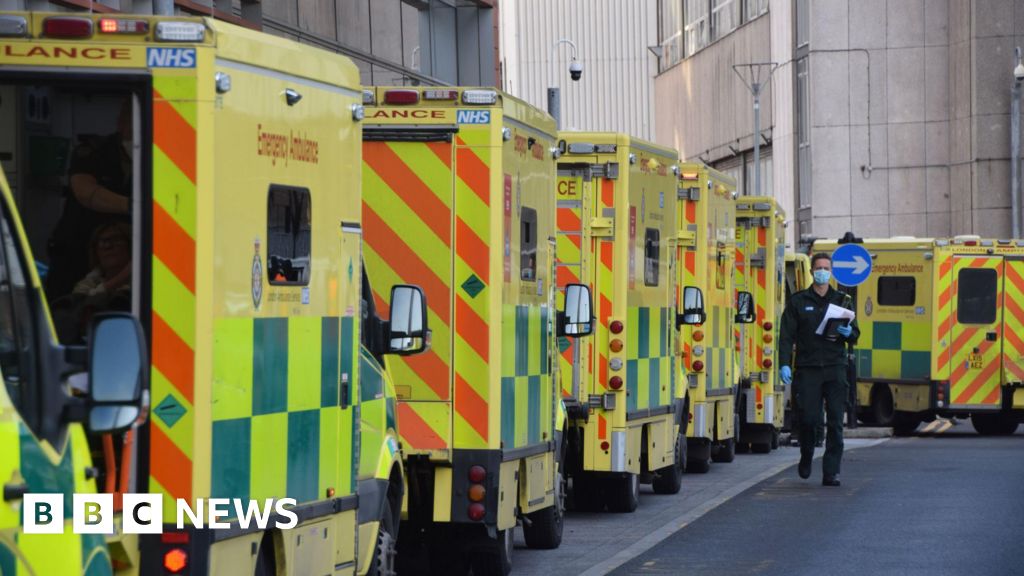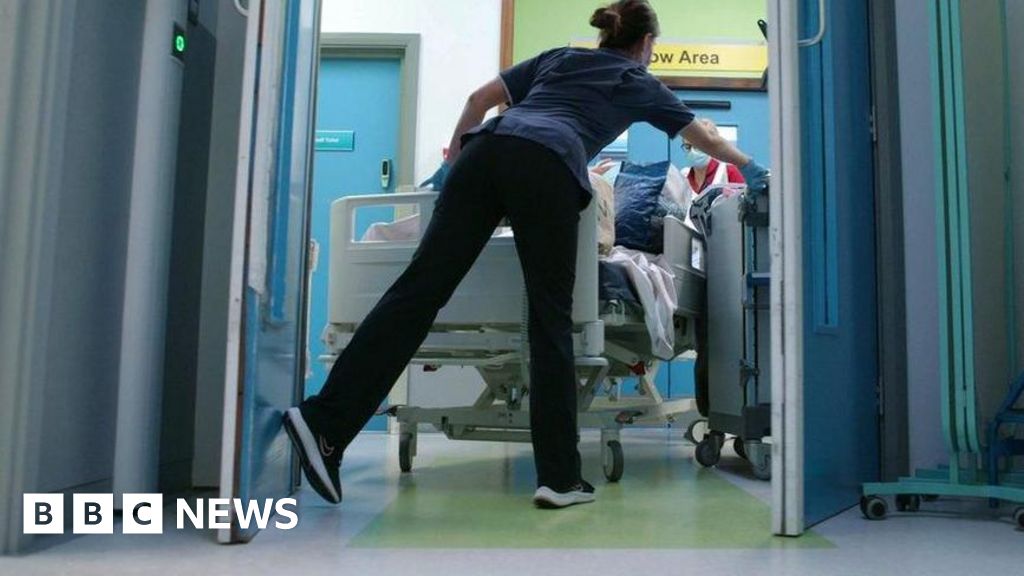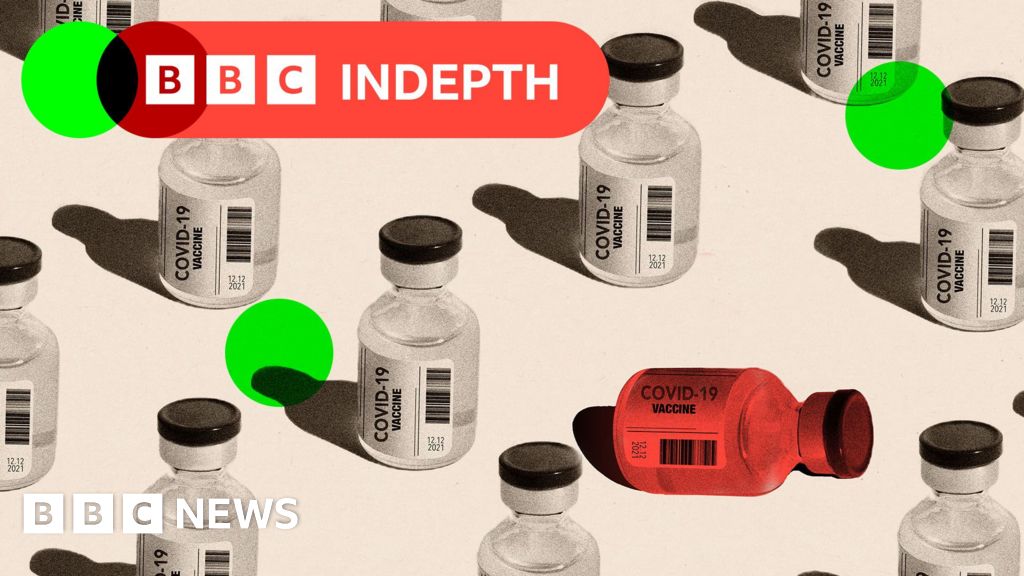ARTICLE AD BOX
By James Gallagher
Health and science correspondent
Image source, Getty Images
People catching Omicron are 50% to 70% less likely to need hospital care compared with previous variants, a major analysis says.
The UK Health Security Agency says its early findings are "encouraging" but the variant could still lead to large numbers of people in hospital.
It also shows the vaccine's ability to stop you catching Omicron starts to wane 10 weeks after a booster dose.
Protection against severe disease is likely to be far more robust.
The report comes hot on the heels of data from South Africa, Denmark, England and Scotland which all pointed to reduced severity.
The latest analysis is based on all cases of Omicron and Delta in the UK since the beginning of November, including 132 people admitted to hospital with the variant. There have also been 14 deaths in people within 28 days of catching Omicron.
The report shows people catching Omicron are:
- 31% to 45% less likely to go to A&E
- 50% to 70% less likely to be admitted to hospital for treatment
However, a milder virus could still put pressure on hospitals.
The issue remains that any benefit of a milder virus could be wiped out by large numbers of people catching Omicron. The UK has set another daily Covid record with 119,789 confirmed cases.
There is also uncertainty about what will happen when Omicron reaches older age groups as most of those catching it and going into hospital so far are under the age of 40.
Dr Jenny Harries, the chief executive of the UKHSA, said: "Our latest analysis shows an encouraging early signal that people who contract the Omicron variant may be at a relatively lower risk of hospitalisation than those who contract other variants.
"Cases are currently very high in the UK, and even a relatively low proportion requiring hospitalisation could result in a significant number of people becoming seriously ill."
There are also signs that the effect of booster doses is waning.
Two doses of a vaccine were shown to offer limited protection against catching Omicron, which was then restored with a booster dose.
However, the report says this protection drops by between 15% and 25% after 10 weeks. This is still better than having no booster dose and the protection against severe disease or death is likely to be even greater.
The health and social care secretary, Sajid Javid, said the early data was "promising" and government was monitoring the data "hour-by-hour".
But he warned: "Cases of the variant continue to rise at an extraordinary rate - already surpassing the record daily number in the pandemic. Hospital admissions are increasing, and we cannot risk the NHS being overwhelmed."
Related Internet Links
The BBC is not responsible for the content of external sites.

 3 years ago
42
3 years ago
42








 English (US) ·
English (US) ·